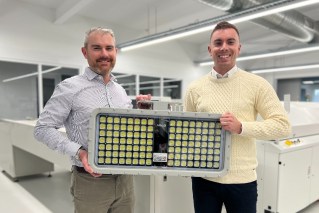
It’s been a rocky ride for the banks but this isn’t the end of dividends
For years, Australia’s Big Four banks have been seen as the bluest of Blue Chips, thanks largely to their reliable stream of dividends.

(Supplied)
Now, for the moment at least, those dividends (and associated refundable franking credits) have dried up.
In early April, APRA – the government banking regulator – wrote to the banks, warning that tough times were ahead thanks to the disruption caused by COVID-19.
In particular, APRA singled out dividend payments, saying it hoped the banks “will seriously consider deferring decisions on the appropriate level of dividends until the outlook is clearer”.
Commonwealth, the biggest of the four banks, had already paid out an unchanged $2.00 dividend.
But the others, which operate on a different financial year basis to the Commonwealth, were still preparing their half-year results. And they were forced to take notice of APRA.
National Australia Bank cut its half-year dividend from $0.83 to just $0.30. ANZ and Westpac decided against paying a dividend at all.
In total, that’s nearly $10 billion that won’t be going to shareholders this year. But that’s not necessarily bad news.
People invest in shares for a number of reasons – to generate income, to benefit from rising share prices over time, or even to own a stake in a successful business.
Which goes some way to explaining why shares in the Big Four have been popular, because they seemed to have it all: steady dividends, solid capital appreciation and the security of owning part of a big bank.
But for now, the impact of COVID-19 means we need to take a different view of the banks.
In ordinary times, banks, like most businesses, will pay out some of their profits as dividends, and hold some back for future growth, or to act as a buffer.
But Morgans analyst, Azib Khan, says these aren’t ordinary times, and there is logic in the decision of the banks to cut, or suspend dividends, building a safety buffer instead.
“One of the reasons our banks have been successful is their business models, particularly in the wake of the GFC,” Khan says.
“By taking a conservative approach to managing capital, they’ll be in a stronger position once the economy starts recovering than if they’d continued paying high levels of dividends”.
Collectively, the banks have set aside billions of dollars in provisions to cover expected credit losses from COVID-19, and haven’t indicated when dividend payments might be restored.
This could have an impact on investors who have previously relied on those dividend payments, including SMSF trustees needing to draw down a minimum level of pension from their fund.
And while dividend payments from the banks are likely to be restored over time, now might be time to consider other forms of investment income to increase diversification.
In the short term, some investors may need to draw down on capital to replace dividends.
While the economy will recover from the impact of COVID-19, the current downturn provides an opportunity to review portfolios to be prepared for any future shocks to financial markets.
To find out more about how to protect your portfolio, get in touch with your nearest Morgans office.

















